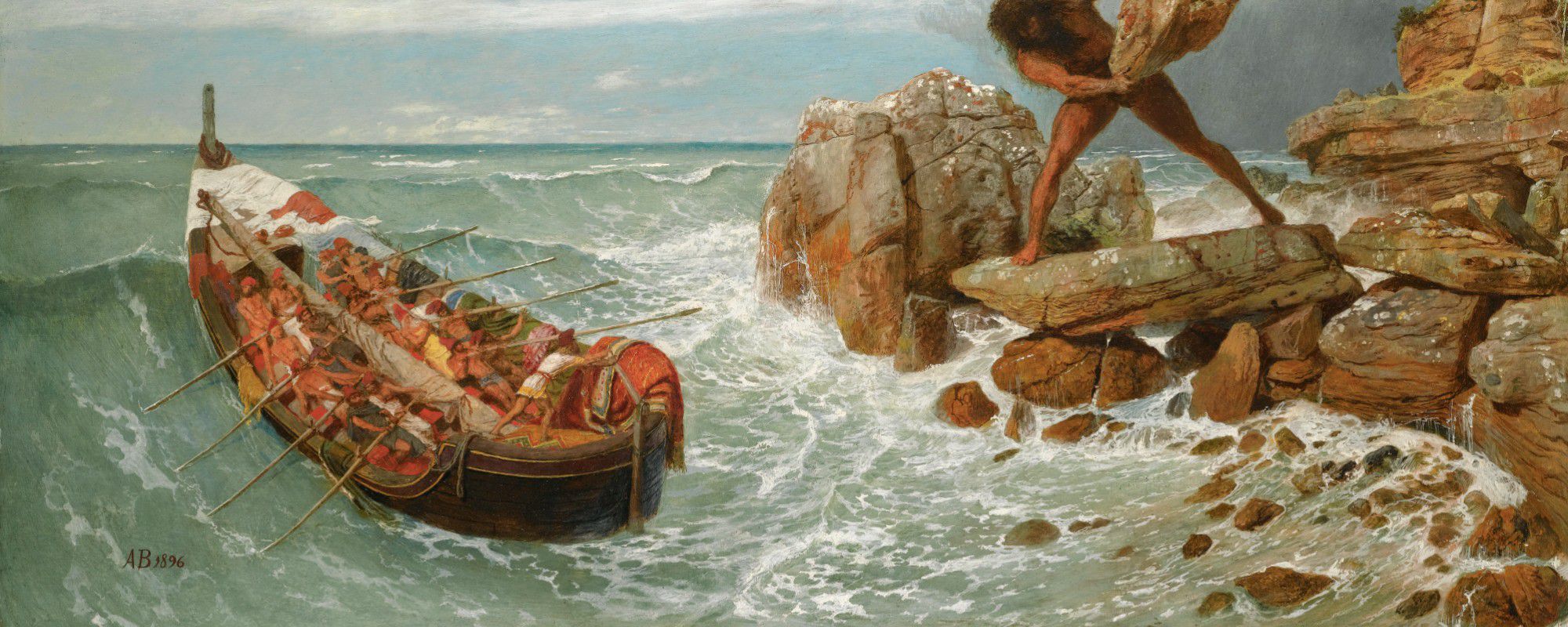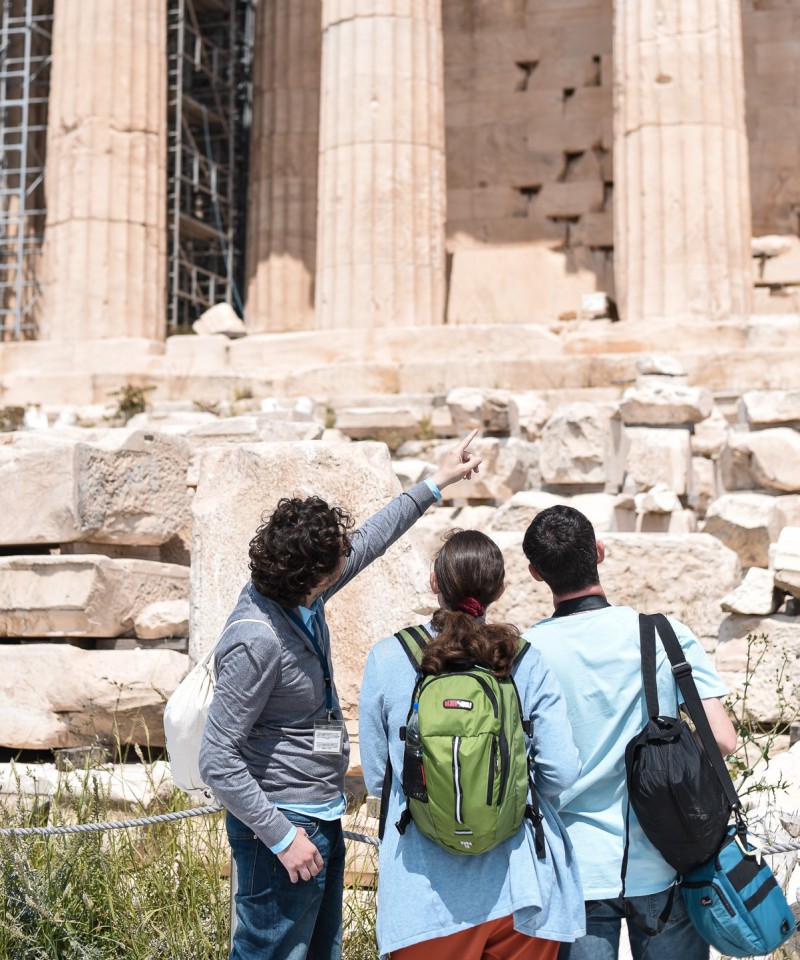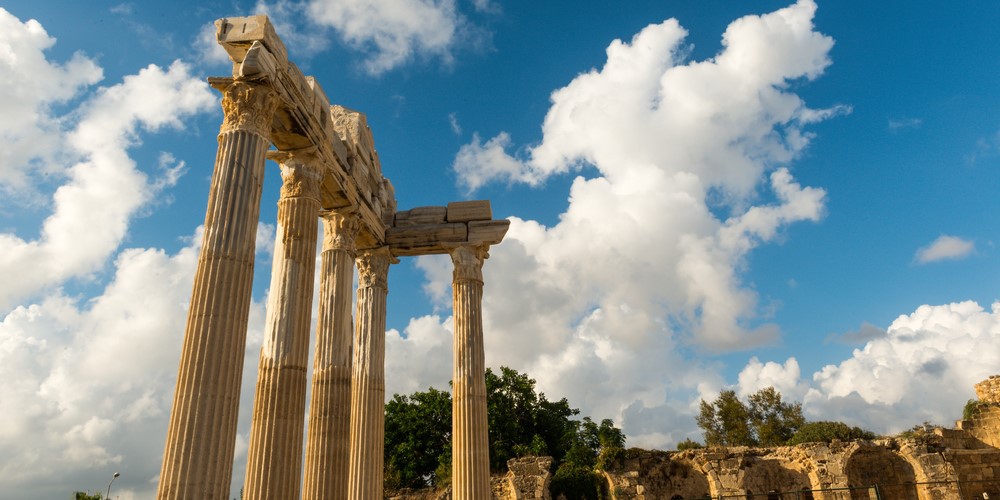
The Trojan War; Myth or History?
Key Takeaways
- The Trojan War warns against the dangers of pride and arrogance in triggering devastating conflicts.
- Loyalty and betrayal played pivotal roles in shaping the outcomes of the war.
- The war illustrates the tragic human cost and suffering caused by prolonged conflicts.
- The involvement of gods showcases the ancient belief in divine intervention and fate's influence on human affairs.
The Trojan War, the famous bloodshed between the Greeks and the defenders of the city of Troy in Anatolia, sometime in the Late Bronze Age, has been capturing the interest of people for thousands of years, both as a myth and a historical event. Later Greek writers date the legendary conflict to the 12th or 13th century BC.
The war sparked the imagination of the ancient Greeks more than any other event in their history and was celebrated in the Iliad and Homer's Odyssey, as well as many other early lost works, and often provided material for the great playwrights of the Classical Age. It also appears in the bibliography of the Romans all the way to the present day.
In any case, it influenced and shaped the way we perceive ancient Greek culture until the 21st century. This story of gods and heroes is perhaps one of the richest sources preserved from antiquity. Here is a Trojan War summary in order for you to gain knowledge about the war, religion, customs, and behaviors of the ancient Greeks.
The Beginning of the War
The fall of Troy - thecollector.com
The famous myth concerns the occasion of the Trojan War that begins, from the quarrel between Zeus' wife, Hera, the goddess of wisdom Athena, and the goddess of love, Aphrodite. It all started when Zeus decided to marry the king of Fthia, Peleus, to a sea fairy, Thetis, the daughter of Nereus.
The wedding took place in Pelion and all the gods and goddesses were invited. Only Erida, the goddess of quarrel, was not called because wherever she went she sowed conflict. As a result, she got very angry and went to the wedding invisible and left on the wedding table an all-gold apple, which bore the inscription ‘for the most beautiful’, to cause upset and discord between the gods. Of course, Hera, Athena, and Aphrodite, the three greatest goddesses of Olympus, each claimed without delay the golden apple, which was seen as a beauty award.
The choice was difficult, so Zeus ordered Hermes to go with the goddesses to Mount Ida and meet the second son of the king of Troy Priam, Paris, who would choose which of the goddesses should be preferred for the beauty award. Paris, who was grazing his father's flocks unsuspectingly, seeing the gods approaching him, started running away in terror.
However, he was quickly encouraged with the intervention of Hermes, who announced the order of Zeus. He approached the three goddesses, dazzled by their beauty. In an effort to convince him that she was worthy of the golden apple, Hera said that she was the wife of the god who was respected and obeyed not only by mortals but also by all other gods and promised him that his kingdom would include all of Asia and Europe. Athena boasted of her wisdom and javelin skills and promised to make him an invincible warrior. Aphrodite spoke of the erotic desire that only she knew how to awaken in the hearts of gods and men and promised to give him as a wife the most beautiful woman in the world.
Paris, fascinated not only by the extraordinary beauty of Aphrodite but also by the gift she promised him, handed her the golden apple, while the other two goddesses, Hera and Athena, left obviously dissatisfied with his choice.
Helen of Troy
The Trojan war - credits: ancientworldmagazine.com
Helen was raised by the king of Sparta, Tyndareus, who thought she was really his daughter, in his court. Her unique beauty became a reason to be abducted at a young age by Theseus, who brought her to Afidna in Attica and had a daughter with her, Iphigenia.
However, when Theseus descended to Hade for the abduction of Persephone, her brothers, Castor and Polydeuces, managed to free her and bring her to their father's court. However, by then, the beauty of the young woman had become known all over Greece, and suitors or their representatives began to arrive at the palace of Helen’s mortal father, trying to secure her on their behalf.
In the face of so many candidacies, King Tyndareus found himself in a very difficult position, as he knew full well that whoever he chose for his daughter's wife would make all the others enemies. Odysseus helped him out of this difficult position, by asking in return for his help Penelope, the king's niece, for a wife.
Odysseus advised Tyndareus to persuade the prospective grooms to let Helen choose her own husband. But before Helen made her choice, everyone had to swear that they would punish the one who would try to remove her from her marital home. Everyone swore willingly, with the exception of Odysseus himself and Achilles, who was too young to make claims.
Eleni chose Menelaus as her husband, a fact that pleased Tyndareus very much, not only because Menelaus was the richest of all the Achaeans, but also because he was supported as a candidate by his brother Agamemnon, who had married another daughter of Tyndareus, Clytemnestra.
And when Castor and Polydeuces were killed, Menelaus was called to become king of Sparta. The plan for the Trojan War was going well. The rulers of the Achaeans, with few exceptions, had vowed to defend a woman, who was destined to be abducted by her husband, because it was the "gift" of a goddess to a mortal.
The Abduction of Helen
The fight between Achilles and Hector - credits: britishmuseum.org
Aphrodite had promised Paris the most beautiful woman. So when he announced to his family his desire to travel, no one objected, although his brothers, Elenos and Cassandra, who possessed the art of divination, prophesied that such a journey would result in the destruction of Troy.
These prophecies were not able to stop him. Besides, he had Aphrodite with him, who even gave her her son Aeneas as a travel companion. So Fereklos built ships on behalf of Paris, because the Trojans did not deal with the sea until then because of an old oracle that said that the catastrophe would come from the sea.
When the ships were ready, Paris set off in the direction of Menelaus' palace in Sparta. Arriving there, Menelaos welcomed him warmly and with all the honors provided by the rules of hospitality. Ten days later, however, Menelaus was forced to go to Crete to bury his grandfather, Katreas.
Before leaving, he instructed his wife to take care of the strangers as best she could. Without being hindered anymore, Aphrodite fulfilled her promise to Paris. Taking advantage of Menelaus ' absence, Paris put Eleni on one of his ships, taking with him much of the palace treasures, as well as some of Helen's slaves, and left.
Helen left her nine-year-old daughter, Ermioni, in the palace. The return trip to Troy was not so easy for Paris and his entourage. The ships, driven by bad weather, sent by Hera, arrived in Sidon first. Then they hid for a long time in Cyprus and Phenicia, because they did not know if they were being chased.
After several adventures, however, they arrived in Troy, where Paris formalized his relationship with Helen.
When Menelaus, who had been warned by Iris, returned to his palace, he found it empty not only of his wife but also of his belongings. The violation of the traditional laws of hospitality and the insult of Menelaus by Paris caused the anger and indignation of Menelaus and his brother Agamemnon, to whom he immediately appealed.
They sent an embassy to Troy, demanding from its king Priam to give them both the stolen woman and the treasures that had been seized from Menelaus' palace. The embassy turned unresponsive, as Priam flatly refused, apparently wanting to do his son a favor. When their efforts failed, they realized they had no choice but to go to war.
The Greek Forces
Achilles in the Trojan War - credits: ancient-origins.net
After her abduction, Agamemnon began to send envoys to the former suitors of Helen, reminding them of the oath they had given to Tyndareus and also using the argument that none of the Greek kings could be sure of his wife in the future if the punishment of the blasphemer was not exemplary.
However, it is a fact that Agamemnon forced many to take part in the campaign against Troy, as he was the most powerful among the Greek rulers.
There was also Hera, who did not mean to forget the insult that was done to her in the beauty contest and definitely wanted to take revenge on Paris for his choice. At the same time, Menelaus himself went to Pylos personally to report his problem and intentions to the older king, Nestor, and to his son, Antilochus.
They immediately agreed to follow him, and all moved together, accompanied by Palamidis, to Ithaca to persuade its king, Odysseus, to campaign with them.
Odysseus, who had not taken an oath, wanted by all means to stay away from this invitation because the seer Alithersis had prophesied that, if he followed, he would return home only after twenty whole years and after many adventures. So trying to avoid participating in the campaign, he pretended to be crazy.
When the other leaders arrived at his house, they found him with an ox and a horse in his plow, wearing a hat on his head, presenting a rather indecent image of himself. And as if all this were not enough, he threw salt in the ditch instead of seed.
Palamidis, however, was not deceived by Odysseus' trick, and in order to reveal his pretense to others, he placed the little Telemachus in front of the plow. Odysseus was forced to stop the animals and promise to follow them. Palamidis, however, was never forgiven, and in the end, the hatred that Odysseus had for him was paid for by Palamidis with his life.
It was Achilles' turn now. His mother, Thetis, as the goddess he was, knew that if he went to war, he would not return. That is why he sent him at the age of nine to Skyros, to King Lykomidis, to grow up with his daughters in the palace.
During his stay there, he fell in love with a princess, Deidameia, who gave him a son, Neoptolemus. The presence of Achilles in the court of Lycomedes was not ascertained, but his participation in the campaign was necessary because there was the oracle that without Achilles, Troy would not fall into the hands of the Achaeans.
So, Odysseus moved to Skyros to find out if Achilles was really hiding there. He took with him women's dresses and jewelry, under which he had hidden a shield and a sword. Under the pretext that he wanted to offer gifts to the princesses, he went to the women's apartments.
And while Lycomedes' daughters were wondering about their gifts, he sounded the trumpet as if it were a battle. Then Achilles, having the instinct of a warrior, seized the weapons that were inside the dresses. With this move, he was revealed and forced to follow them and take part in the campaign led by the Myrmidons.
As the time approached for the gathering of the army from all parts of Greece, Agamemnon requested, as usual, an oracle from the oracle of Delphi for the prospects of the campaign. The answer he received was that when the most courageous of the Achaean leaders quarreled with each other, this would be a good sign for the outcome of the war.
The Sacrifice Of Ifigeneia
The fall of Troy - credits: jeanmoust.com
Knowing the road to Troy, the main obstacle to carrying out the campaign had been overcome. The problems, however, were not absent until the last moment.
Although the army had regrouped in Avlida and the last preparations for the campaign were almost complete, for a long time, there was no suitable time to set sail. That is why Agamemnon offered to goddess Artemis the most beautiful child of that year.
Artemis initially seemed to accept Agamemnon's offer. One day, however, the king went out hunting and, unsuspecting entered a grove dedicated to Artemis. A beautiful fawn hatched there.
Without hesitation, he killed the sacred animal and also boasted that Artemis herself could not save the animal from his amazing accuracy. After this, a complete lack of winds prevailed, and the army began to look forward.
Calchas, the soothsayer of the army, revealed that Agamemnon was to blame for the goddess' wrath and that his eldest daughter had to be sacrificed on her altar to appease her.
Of course, Agamemnon would have preferred to forget the army and return home, but the insistence of the army, which wanted to act, was stronger than his own desires. At Odysseus' urging, he decided to invite her to Avlida to marry Achilles immediately.
And indeed, Iphigenia came to Avlida with her mother and her brother Orestes. But they quickly learned the real reason why they were called. Enraged that Achilles had used his name for such a purpose, and without even being asked, he risked his life to prevent the Achaeans from doing so.
His attempt, however, did not yield results. Eventually, Iphigenia decided to offer herself and walked alone to the altar with her breasts bare to accept the knife from the hand of the perpetrator Calchas.
Everyone turned their faces elsewhere or covered them so that they wouldn’t see what was to follow. Only Calchas saw the miracle that took place at the very moment of the massacre. In place of Iphigenia, the goddess had put a deer just before the knife hit the body of the young woman.
And it was this deer that was ultimately sacrificed to secure the favor of the goddess. And the sacrifice has been accepted. Now nothing could stop the Achaeans. Their fleet could now sail from Avlida. As for Iphigenia, the goddess transported her to the Taurus Peninsula and made her a priestess in her temple there.
The Departure for Troy
The Trojan war - credits: brewminate.com
The Achaean fleet on the voyage to Troy stopped at Delos, where the Achaeans met the king of the island and priest of his father, Apollo, Anios. His mother, Roio, was locked up in a cell as punishment and thrown into the sea by her father, Stafylos, when he learned she was pregnant.
Eventually, Roio went out on a beach in Evia, where she gave birth to a son. He named him Anio to remember what he went through for his sake. After his godfather brought him to Delos, he married Dorippi, who gave him three daughters, Oino, Spermo, and Elaida.
These daughters, known as Inotropoi, had received from their grandfather, Dionysus, the gift of turning the soil they touched first into wine, the second into offspring, and the third into oil. Anios, therefore, suggested to the Achaeans to stay in Delos because, as a soothsayer he knew, he knew that the castle of Troy would fall after 10 years.
The army would be fed by his daughters. The Achaeans refused the kind offer of the king of Delos but kept his promise to send them his daughters if they lacked food during the siege.
The next stop on their journey was the island of Chrysi, on which Jason had built an altar to the goddess Chrysi. This goddess guarded the Hellespont, and the Achaeans had to appease her.
The exact location of the island was known only to Philoctetes, the son of Poion and Dimonassa, who had followed Jason in the Argonaut expedition. But as soon as the Achaeans arrived there and began the sacrifice, a snake bit Philoctetes on the leg.
The wound was malformed and smelled so bad that no one could tolerate it. At the urging of Odysseus, he was finally taken to Lemnos while he was sleeping soundly, and left there alone. The captain of the seven ships of Philoctetes was then the illegitimate son of Oileas, Medon.
Shortly before arriving in Troy, the Achaeans set sail for the island of Tenedos to rest. The king of the island of Tennis, probably the son of Apollo, had a different opinion and started throwing rocks at them. Then Achilles killed him with his sword, forgetting his mother's advice not to kill Apollo's sons.
Then he chased Tennis's sister, Hemithea, but she hid in the ground. Eventually, all the Achaeans landed on the island, and Agamemnon organized a large banquet in honor of the Achaean rulers. However, he did not call Achilles one of the first, and he misunderstood and threatened to pick them up and return to Greece.
The other leaders tried to normalize things, while Odysseus wanted to bring him to justice, saying that he was actually afraid of Hector. Eventually, with Thetis' intervention, he reconciled with Agamemnon.
Soon, however, a new vicious quarrel broke out between Achilles and Odysseus over how they would take Troy. One was talking about a lad, the other about deceit. Agamemnon listened to them and rejoiced because he remembered the Delphic oracle that the quarrel between the brave would be a good sign for the outcome of the war.
The Palladio
A sculpture of wounded Achilles - credits: thecollector.com
Along with the oracles for the fall of Troy, Helen had revealed to the Achaeans that Troy would not fall into their hands if they did not remove Palladium, the wooden statue that was in the temple of Pallas Athena and protected the city. The theft of Palladium was entrusted to Odysseus, who considered it expedient to first enter Troy as a spy for spying and gathering information.
For this purpose, he entered Troy dressed in rags and looking abused. He appeared before the Trojans, ragged and miserable, asking for protection from the Achaeans who had made him so. No one seemed to recognize him, except perhaps Eleni, who, with a series of clever questions, tried to find out evidence of his true identity or status.
However, Odysseus, with clever answers, managed not to betray himself. Then, Eleni asked the Trojans to take this unfortunate man to her house to take care of him. There, Eleni learned the plans of the Achaeans for the fall of Troy after she first swore that she would not betray him.
She helped Odysseus to find out what he wanted, and after killing the targets guarding the gates, he returned to the Achaean camp safe and sound.
With Odysseus having been spotted on the streets of the city, he entered the city again through a sewer with Diomedes, they reached the temple, killed the guards, seized Palladium, and took the road back.
As they walked, Odysseus asked Diomedes for Palladium so that he could take it to the camp and be glorified by the Achaeans. Diomedes refused, obviously thinking the same thing.
Then Odysseus, who was behind Diomedes, raised his sword to kill him. Diomedes noticed the sword and turned to face it. As he was stronger, he defeated him, and they continued on their way, Odysseus in front and Diomedes behind with the sword in one hand and Palladium in the other.
The Trojan Horse
The Trojan Horse - credits: greekmythology.com
Before the Achaeans seized the Palladium from Troy, Athena advised Odysseus to commission Epius to build a huge wooden horse. This horse went down in history as the Trojan Horse.
Indeed, Epios, using timber from the neighboring mountain Ida, managed to build a huge wooden horse with hidden openings on the right and left, which could hold about three thousand armed men.
Now that the Achaeans had the Palladium in their possession and Troy was unprotected, they could finally carry out their plan.
They first carved the inscription ‘Greeks Athena charistirion’ on the Trojan Horse and then filled the horse with the most courageous of the Achaean heroes, Odysseus, Diomedes, Menelaus, Ajax Lokros, Neoptolemus, Teucer, Mirionis, and of course Epios, who knew how to open the hidden openings.
For all those who were locked in the wooden construction, the risk was extremely high. If the Trojans discovered them, there wouldn’t be even the slightest possibility of salvation. Regardless, they took risks in order to achieve the common goal.
As soon as their boarding of the Trojan Horse was completed, the others set fire to their tents, dragged their boats into the sea, boarded them, and left the shore of Troy. They arrived at Tenedos at a point that was not visible from Troy. They left behind only one of Odysseus' relatives, Sinon, who would try to deceive the Trojans the next day.
When the next morning came, the Trojans did not believe their eyes. From the walls, they saw the ruined tents and the empty camp, and they could not understand what was happening.
They carefully left the city but at first stayed near the walls, fearing that the Achaeans would appear in front of them. When this didn’t happen, they overcame their hesitations and entered the burning camp of the Achaeans.
It was not long before they discovered the Trojan Horse, which seemed to be the only thing that the Achaeans had left behind. Reading the inscription on it led many to conclude that they should carry this wooden tribute into the city.
However, some did not seem to be convinced and disagreed, asking to check the content of the construction, while others were more skeptical and wanted to throw it directly off the cliff.
At that moment, some Trojans arrived, dragging with them a prisoner, who was none other than Sinon. He -well prepared for the interrogation that would follow- began to tell his false story in order to deceive the Trojans.
He said he was a relative of Palamidis, the most honored hero among the Achaeans, who, with his ingenuity and youth, had taken the Achaeans out of a difficult position in many cases.
But those ungrateful ones killed him after the plot that Odysseus set up against him. And he himself fell into disfavor because he did not hide his dissatisfaction with the murder of his relative and his desire to avenge the Achaeans for their unjust decision.
Fortunately for Sinon himself, however, the Achaeans had to face more serious problems, as Odysseus and Diomedes had infuriated Athena with their sacrilege act of capturing Palladium with their hands infected by the murder of the guards of her temple at Troy.
As soon as he was brought to the Achaean camp, he bounced three times with flames coming out of his eyes.
The oracles of the soothsayer Kalha to explain this phenomenon was clear. Athena was no longer protecting the Achaeans, they had to end the siege and return to their homeland. But before they left, they made a wooden tribute in honor of the goddess to appease her.
It was deliberately huge so that the Trojans would not take it in the city in place of Palladium. But if they destroyed it, they would provoke the wrath of the goddess.
The Achaeans made the necessary preparations for the departure, but the bad weather did not allow them to leave. They then sent Euripides to the oracle of Delphi, who returned with the answer that they had to make a human sacrifice, as in Avlida, to ensure favorable winds, but without the oracle determining who should be the victim.
In the face of this new impasse, everyone turned to Calhas, who initially stated that he did not know either.
Later, however, in consultation with Odysseus, who apparently wanted to exterminate his enemy, he suggested Sinon. But he managed to escape and hide until the moment when the Trojans discovered him and brought him there.
The Trojans could not hide their joy for what they heard, absolutely convinced that Sinon was telling the truth. As a result, they freed him and with whatever means they had, they started dragging the Trojan Horse toward Troy, wanting to be under the protection of Athena as soon as possible.
When they found out that it was too big to go through the Shadow Gates, they tore down a piece of the wall and put it in the city. As they tried to decide what was the best place for the tribute, Priam, Kassandra's daughter, tried in vain to warn them of the dangers that this construction carried.
The Trojans, however, remained unconvinced and eventually placed the Trojan Horse on their citadel, Pergamon.
A last attempt to warn the Trojans was made by Aeneas and the priest of Apollo at Thymbra, Laocoon, who struck the Trojan Horse with his pole in the abdomen, arousing new hesitations. But most Trojans were already convinced of the correctness of their decision, and Laocoon's reservations fell into the void.
However, then, the priest went with his two sons to the beach to sacrifice a bull to Poseidon a found a horrible death together with one of his sons from two huge snakes, which came out of the sea and devoured them.
Laocoon's death puts aside even the last hesitations, as the Trojans interpreted it as a punishment for his disrespect for hitting the tribute to Athena with a pole.
The festivities continued all day, and when the night fell, the Trojans slowly began to withdraw to their homes, dazed by the wine and overwhelmed by the fun and excitement of the day. Soon everyone was fast asleep except for Helen and her new husband, Deifovos.
These two had reasonable suspicions that inside the wooden structure were Achaeans. To find out if this is true or not, Helen decided to use the magic art she possessed and the charisma to imitate the voice of any woman she wants, which Aphrodite gave her as a wedding gift on the day of her marriage to Menelaus.
Accompanied by her husband, Eleni arrived at the citadel and approached the Trojan Horse. She went around it three times, touching it in a magical way, in order to inactivate the psychic forces of the hidden Achaeans and to impose her own will.
Then, she began to speak successively to each hero individually, as if they were in front of her, imitating the voice of each Achaean’s wife.
Many of the Achaean heroes were about to be deceived and got up to respond to the call, but Odysseus, with a jolt, brought them back to reality. And when an Achaean, Antiklos, attempted to go out, Odysseus grabbed him, gazed at his mouth, and immobilized him until Helen and Deifovos finally left with the intervention of Athena.
Sinon, who had been left out of Troy, watched from afar the Trojans' movements throughout the day, their feasts, and their amusements. After making sure that everything went well and that the Trojans did not discover the trick of the Achaeans, he went up to the tomb of Achilles and Patroclus, in Sigio, and with a lit torch gave the signal to the Achaeans, who were hiding in Tenedos, to start.
The Fall of Troy
The fall of Troy - credits: wikimedia.org
Indeed, the Achaean fleet, which was on standby, began to arm themselves immediately and quickly ran aground on the shores of Troy. And while the Achaeans landed on land, Odysseus gave the signal to open the hidden openings of the Trojan Horse. The hidden Achaeans began to descend with ropes. As soon as they set foot on the ground, they were divided into groups and opened all the gates of the castle of the city, while the first parts of the main body of the Achaean army already arrived from the shore.
This is how the slaughter began. The resistance of the Trojans was negligible, as the Achaeans literally caught them in their sleep and slaughtered them mercilessly.
The Return to Greece
A painting depicting the Trojan war - credits: historyhit.com
The Greeks entering the city killed all the Trojans. The only exception was Aeneas and his people. After the Greek massacre, none of the males survived in the city. Neoptolemus killed the old king Priam on the doorstep of his palace.
The male children of the Trojan heroes were slaughtered. Hector's little boy was thrown from the castles. Menelaus, despite having decided to kill Helen, in the face of her beauty, abandoned the original idea. After the looting and burning of the city, the Greeks left Troy.
Thus, the Achaeans captured, plundered, and destroyed Troy after a ten-year siege. But the winners of the Trojan War did not end up with better luck than the losers.
Odysseus wandered for ten years in inhospitable and unknown areas to finally reach his homeland alone and unrecognizable, where he found his wife, Penelope, surrounded by suitors who were destroying his life.
The second great masterpiece of Homer, ‘The Odyssey,’ describes his adventures. Other Achaeans, too wandered for many years before finally reaching their homeland, such as Menelaus, while others were not able to return to their homeland because they found a bitter death in their wanderings, such as Ajax Lokros.
Some even managed to return home, only to encounter hostility from their own people, such as Agamemnon, who was killed by his wife Clytemnestra and her lover Aegisthus, and Teucer Telamonius, who was forced to flee to foreign lands in order to become the settler of Salamis in Cyprus.
Only a few were able to return home without much difficulty, such as Nestor and Neoptolemus.
The Historical Truth
The Trojan war - credits: wikipedia.com
We saw, in summary, the mythical version of the reason for the start of the Trojan War. Was it a matter of honor for a king whose wife was abducted? Were there any goddesses whose philanthropy caused so much unrest and so many deaths? or was something else happening?
If one goes back in history, shortly before the start of the Trojan War and on the side of the Achaeans, the Mycenaeans saw that a civilization had developed and a rise in living standards in the Peloponnese and the surrounding areas.
The so-called Mycenaean civilization was the first Greek of the Late Bronze Age to develop in the period 1600-1100 BC. mainly in central and southern Greece, from where the very large percentage of forces that took part in the Trojan War were.
During its heyday, it spread to Crete, the Aegean islands, and the Eastern Mediterranean but also to Cyprus. The Mycenaean Greeks of the 13th century BC. had colonized mainland Greece and Crete and began to invade Asia Minor.
In no case could they leave Troy alone, it was a rich City-State that would give the kiss of life to the collapsing cities of the Achaeans and their allies.
Troy held an important strategic position at the SW entrance to the Hellespont, controlling the sea route between the Aegean and Propontis and the Black Sea, as well as the land routes that connected the European states with Asia Minor through the Hellespont crossings.
It took advantage of its excellent geostrategic position to tax the traders who used the aforementioned land and sea routes.
Troy also exported catches, slaves, skilled craftsmen, and its famous horses to the Mycenaean world, Cyprus, and the Middle East. It was a prosperous city and the seat and probably the capital of Assuba.
The 13th century BC was very important for the countries of the Eastern Mediterranean and the Aegean because the controversies peaked if directly to the civil-military forces, the Egyptians, the Hittites, the Mycenaeans (Achaeans), and the emerging western Asia Minor federations to which Troy belonged.
The Mycenaean world had already begun to disintegrate due to poverty and anarchy. The Achaean kings faced financial problems, as their workshops halved production, there was a shortage of slaves and workers, and their countries suffered from overpopulation.
The trade routes were threatened by raids, and their wealth was exhausted. They had to secure new resources and incomes, plunder the wealth of other countries, and open new trade routes.
On the other hand, Troy gathered the month of the Achaeans, who were the most powerful sailors of the Aegean and was affected by the absolute Trojan control of the Hellespont. In addition, it was a major obstacle to their expansionist aspirations off the coast of Asia Minor, which would loot them.
The Achaeans, therefore, had several reasons to attack Troy, taking advantage of the weakness of the Hittites at that time. After all, they say that wars, with the exception of the National Liberation Wars, have financial motives, and history has proven this over time.
According to archeological and historical findings, especially of the last decade, it is considered more probable that there were various armed conflicts in and around Troy at the end of the Late Bronze Age.
We do not know at this time whether all or some of these conflicts were transferred to the memory of later generations as a distillate of the "Trojan War" or whether there was a particularly significant conflict between them, the "Trojan War."
Nevertheless, recent discoveries lead us to take Homer and his story seriously - that of an armed conflict between the Greeks of metropolitan Greece and the Greeks of Troy, based on historical memories, whatever they may be.
Final Thoughts
The Trojan War is fascinating, whether perceived as a mythological tale or a historical incident. It reveals a lot about Greek history and culture and offers a peak into the ancient Greek world that everyone with an eye for history is thankful for.
Now you can explore even more of Greece's heritage and myths by booking one of our Greece vacation packages that will take you to historical destinations, amazing archeological sites, and interesting museums.
You're only a click away from delving into the intriguing world of Greece's past!












